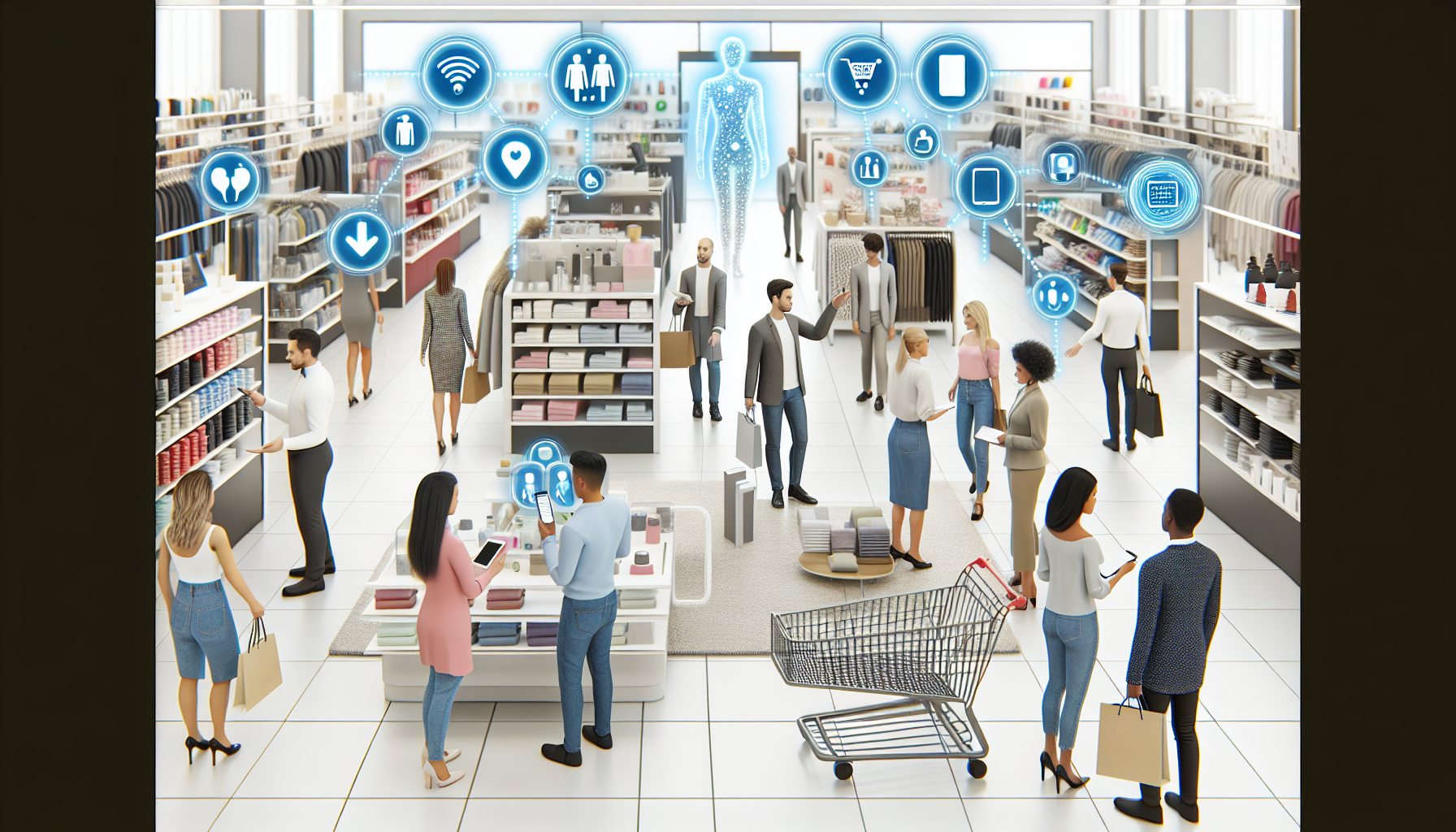The Role of AI in Personalizing Customer Experiences in Retail
In the rapidly evolving retail landscape, personalization has become a critical strategy that shapes customer experiences and drives sales. Retailers are now leveraging Artificial Intelligence (AI) technologies to craft tailored experiences that resonate with individual customer preferences. This article delves into how AI is used to enhance personalization in retail, discussing various applications and their impacts on customer engagement.
1. Understanding Customer Behavior Through Data Analytics
One of the foundational aspects of AI in retail is its ability to analyze vast amounts of data. Utilizing machine learning algorithms, retailers can dissect customer behavior patterns by collecting data from various touchpoints—online browsing, purchase history, social media interactions, and more.
-
Customer Segmentation: AI algorithms categorize customers into segments based on their preferences, shopping habits, and demographics. Advanced analytics provide insights that help retailers tailor their strategies for each segment, leading to more effective marketing campaigns.
-
Behavior Prediction: Predictive analytics powered by AI allows retailers to forecast customer behavior. By assessing past buying patterns, AI models predict future purchases, thus enabling retailers to proactively offer products and promotions that align with individual customer interests.
2. Personalized Recommendations
AI-driven recommendation systems have revolutionized how retailers present products to customers. By employing collaborative filtering and content-based filtering, these systems recommend items based on previous interactions and preferences.
-
Dynamic Personalization: Retailers like Amazon utilize sophisticated algorithms that analyze each customer’s unique journey. As a customer browses, the system adjusts recommendations in real time, enhancing the likelihood of purchase by showing items aligned with their interests.
-
Cross-selling and Upselling: With AI recommending complementary products or suggesting upgrades, retailers can significantly increase the value of purchases. For example, when a customer selects a camera, the AI system may suggest lenses, tripods, or protective cases, driving further sales opportunities.
3. Enhancing Customer Interactions with Chatbots
AI chatbots have transformed customer service in retail by providing personalized, instant interactions. These virtual assistants utilize natural language processing (NLP) to understand and respond to customer inquiries in real time.
-
24/7 Availability: Chatbots ensure that assistance is always available, providing customers with immediate responses to their questions, whether about order status, product details, or return policies.
-
Personalized Assistance: Advanced chatbots can access customer data to provide tailored responses. For instance, if a repeat customer asks about their previous purchase, the chatbot can pull relevant details, making interactions more meaningful and efficient.
4. Tailored Marketing Campaigns
AI plays a pivotal role in crafting personalized marketing campaigns that resonate with customers on a deeper level. By analyzing customer data and preferences, retailers can develop targeted advertising strategies.
-
Email Marketing Personalization: Retailers can use AI-driven insights to create segmented email lists, ensuring that each customer receives promotions, product recommendations, and content that aligns with their preferences.
-
Real-Time Ad Customization: AI allows for dynamic ad placements that adapt based on customer engagement. If a customer has been browsing sports equipment, they may see targeted ads featuring the latest running shoes or gear as they browse other sites.
5. Smart Pricing Strategies
AI empowers retailers to personalize pricing strategies based on customer behavior and market dynamics. Dynamic pricing models leverage real-time data to adjust prices, optimizing sales while catering to individual customer segments.
-
Customer-Specific Discounts: Retailers can analyze loyalty data to offer personalized discounts on products customers frequently buy. For instance, if a loyal customer routinely shops for organic products, tailored discount offers can enhance their shopping satisfaction.
-
Competitor Analysis: AI systems can also assess competitive pricing and market demand, enabling retailers to adjust their pricing strategies accordingly. This ensures that prices remain competitive while also aligned with customer expectations.
6. In-Store Personalization Technologies
In brick-and-mortar stores, AI-driven technologies are enhancing the in-store shopping experience. Through geolocation and facial recognition, retailers can deliver personalized experiences in the physical realm.
-
Mobile Apps and Geolocation: Retailers can use mobile applications to send personalized offers or information to customers as they enter a store. Geolocation data enables targeted promotions based on the customer’s location within the store.
-
Facial Recognition: Some retailers are exploring facial recognition technology to identify returning customers. By understanding shopping patterns associated with specific faces, retailers can offer personalized greetings, recommendations, or discounts as soon as customers enter the store.
7. Optimizing Inventory Management
AI’s capabilities extend beyond customer interactions, optimizing backend processes such as inventory management. Through predictive analytics, retailers can fine-tune stock levels based on anticipated customer needs.
-
Demand Forecasting: By analyzing trends, seasonality, and customer preferences, AI facilitates inventory planning that aligns with predicted demand—preventing overstock situations while ensuring popular items are always available.
-
Personalized Stocking: Retailers can take personalization a step further by stocking products tailored to specific customer demographics in each location. This ensures that store offerings align with local customer preferences, enhancing satisfaction and sales.
8. Customer Feedback and Continuous Improvement
AI can analyze customer feedback, providing retailers with insights into areas for improvement directly related to personalization efforts.
-
Sentiment Analysis: Using AI to conduct sentiment analysis on customer reviews and feedback makes it easier to identify trends and sentiments associated with products and services. Understanding customer emotions can inform better personalization strategies moving forward.
-
Nudging Behavior and Preferences: AI can test and evaluate customer responses to personalized strategies, helping retailers optimize their approach. By analyzing which strategies yield positive results, retailers can continuously refine their personalization efforts.
Conclusion
As retailers face a highly competitive environment, the ability to personalize customer experiences using AI is not just a luxury—it’s a necessity. By harnessing the power of AI technologies, retailers can create tailored interactions, optimize marketing efforts, and enhance customer journeys like never before. In this evolving landscape, embracing AI-powered personalization will define the successful retailers of tomorrow.


